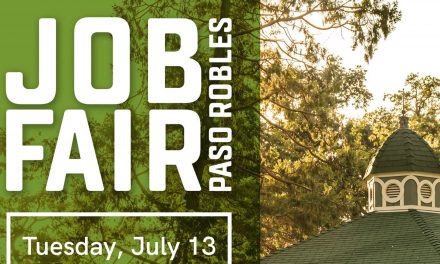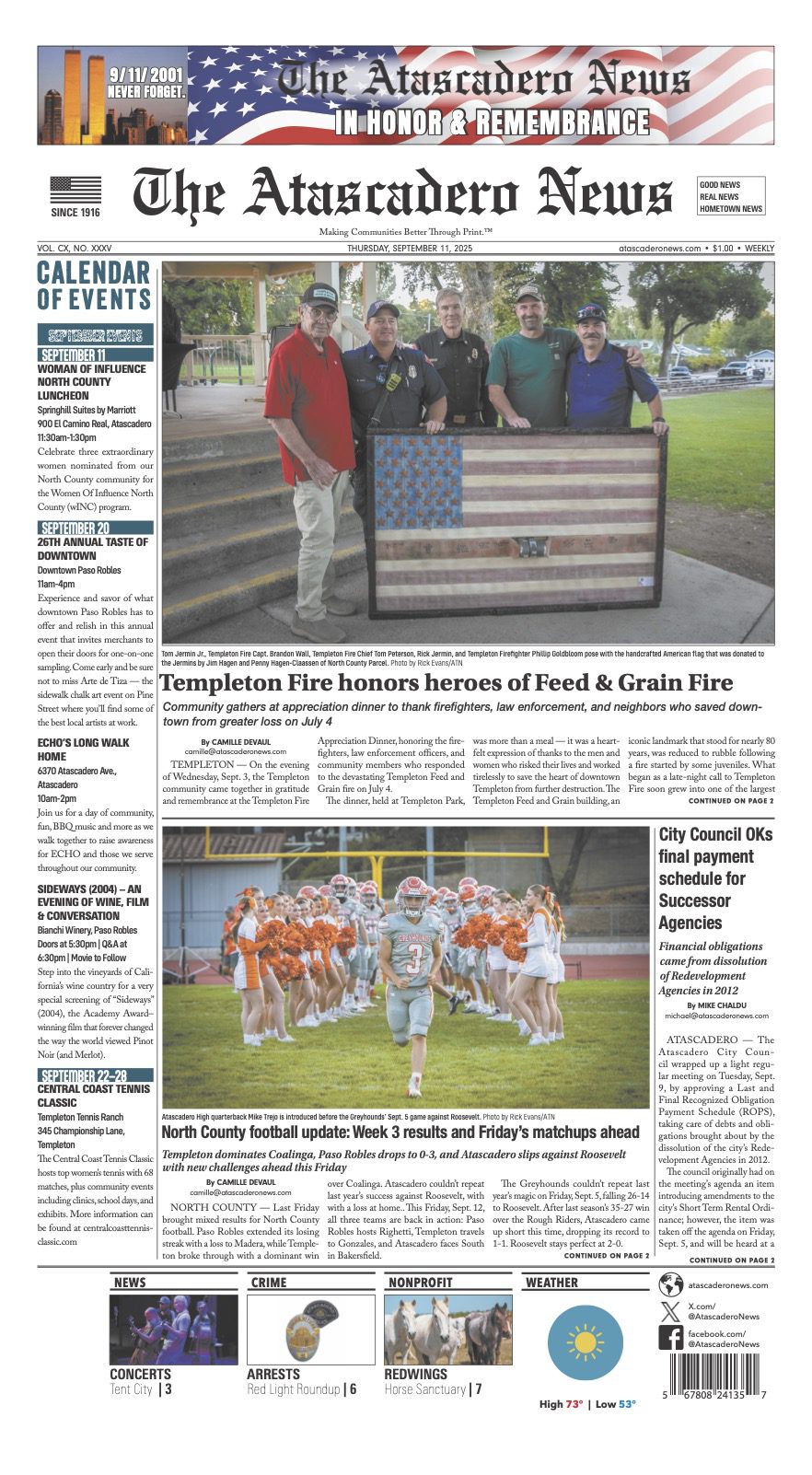SAN LUIS OBISPO — The San Luis Obispo (SLO) County Air Pollution Control District and Public Health Department are working in partnership to assess the air quality in order to identify any potential health impacts and to inform the community about safeguarding individual health. At this time, several wildfires outside of San Luis Obispo County are impacting air quality and causing significant amounts of ash to be present in our air, on our homes, and on surrounding materials.
Until many of the large fires burning are put out, SLO County can expect skies to be hazy and fine particulate concentrations and ozone to be higher than normal. We may also see high levels of larger particulates (ash) to be present as well. Changing winds make it difficult to predict which areas of the county may be most affected.
If you smell smoke or see ash fall:
Air District officials recommend that if you smell smoke or see ash, take precautions, and use common sense to reduce your exposure to smoke. All adults and children should:
- Head indoors and remain indoors, if possible
- Avoid strenuous outdoor activity
- Close all windows and doors that lead outside to prevent bringing additional smoke inside
These precautions are especially important for sensitive groups, including children, older adults, and people with existing respiratory illness and heart conditions, as they are particularly vulnerable to the health effects of poor air quality. Families with small children should be aware that even if adults in the household have no symptoms, children may experience symptoms due to their smaller body mass and developing lungs. If smoke increases, healthy people could be affected as well. If you experience a cough, shortness of breath, wheezing, exhaustion, light-headedness or chest pain, stop any outdoor activity immediately and seek medical attention. More information can be found at slocleanair.org/air-quality/wildfire.
It is recommended that you avoid ash clean-up on cars and other materials until conditions improve. If you have to clean up ash, the following is recommended:
Use a damp cloth and spray areas lightly with water; take your vehicle to the car wash; wash off toys that have been outside in the ash; clean ash off pets; due to the corrosive nature of ash, avoid any skin contact with the ash (wear gloves, long-sleeved shirts); and do not use leaf blowers. Please note, if you have existing heart or lung conditions, avoid doing ash clean-up or anything else that stirs the particles back up into the air. Do not allow children to play in the ash.
Face Coverings During Wildfires:
Cloth masks will not adequately protect you from inhaling wildfire smoke. During the COVID-19 pandemic, cloth masks are encouraged to protect others from the liquid droplets that are expelled when we speak, cough or sneeze from going into the air. Residual spray when you speak produces larger droplets than the PM2.5 particles produced during wildfire events.
Due to COVID-19, N95 masks are in short supply and should be reserved for frontline workers as much as possible. That is why, to the extent possible, people should stay indoors when wildfire smoke is present as opposed to wearing an N95 mask or a cloth face covering for smoke protection.














